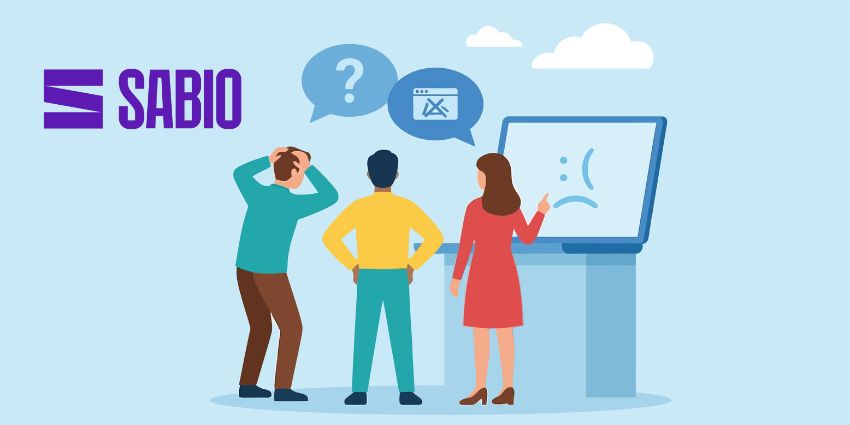RingCentral has launched an AI Receptionist (AIR), marking its agentic AI debut.
As the name suggests, the solution is an AI phone agent that autonomously handles inbound customer calls.
When it is not certain of a helpful response, it routes the customer through to the best-placed agent, replicating the role of a traditional receptionist.
The company has described the move as marking its “foray into agentic AI”.
Businesses with “any budget” can now “instantly deploy” RingCentral AIR, according to the enterprise communications giant.
The vendor believes this ease of implementation is a differentiator from the many contact center intelligent virtual agents (IVAs) on that market that are expensive and complicated to deploy.
Indeed, this ease of use was spotlighted by Kira Makagon, Chief Innovation Officer & CMO at RingCentral, who commented:
RingCentral AIR is designed to work right out of the box, enabling any business, from local service providers to fast-growing enterprises, to automate customer interactions.
“Voice remains a preferred way in which customers communicate, and AI-powered call automation – integrated directly into the phone system – will redefine how companies of all sizes connect with their customers.”
Let’s take a closer look at some of the solution’s key features.
RingCentral AIR: The Headline Features
In its official press release, RingCentral outlined several significant capabilities that it believes make it an ideal tool for SMBs. These include:
- Automated Customer Support: AIR uses GenAI to answer common inquiries based on website and FAQ data, supporting single or multiple business locations.
- Smart Call Routing: AIR directs callers to the right person or department through natural conversation.
- SMS Confirmations: AIR sends key details like addresses and emails via text.
- Call Transcripts and Analytics: AIR captures call transcripts and provides insights into customer inquiries, peak hours, and trends.
- Customizable Voice and Language: AIR currently supports English, with Spanish launching by the end of Q1 and more languages to follow.
- Future-Ready: AIR will soon include AI-powered appointment scheduling.
Several other vendors have released similar capabilities. Yet, Zeus Kerravala, Principal Analyst at ZK Research, appreciates how RingCentral’s release targets a specific use case.
“AI agents can handle a wide range of tasks, but that can leave companies overwhelmed with trying to understand where to deploy it,” he noted.
The use case RingCentral has focused on, the receptionist role, is ideally suited for an AI agent as it handles a number of routing tasks that are easy to automate.
“Also, the reception use case is low risk with high upside,” continued Kerravala. “Many customers are already used to basic automation with IVRs and that has generally left customers dissatisfied. ‘
“A voice AI agent can replace the IVR and provide a better experience,” he concluded.
Early-Adopter Success Stories
While the solution is currently only available to select U.S. businesses as part of a limited release, RingCentral claims that early adopters of AIR are already experiencing the benefits of AI-driven call automation.
This includes a security company that resolved over 50 percent of its inbound calls “instantly”, allowing customers to get quick answers and support.
Similarly, a repair service increased lead capture by 60 percent by answering calls immediately, providing fast responses, and routing customers efficiently – ensuring no missed opportunities.
Meanwhile, a healthcare provider enhanced patient care by eliminating call wait times entirely, reducing average answer times from 12 seconds to zero.
More on RingCentral Entering the Agentic AI Arena
Despite AI agents having taken over the CX tech space in recent times, RingCentral has been oddly quiet on the subject until now.
Indeed, several of its key competitors have already made serious agentic AI moves, including Microsoft, Cisco Webex, and Five9.
Yet, while RingCentral may be a little later to the party, Melody Brue, VP and Principal Analyst at Moor Insights & Strategy, was optimistic about the vendor’s first move.
“As agentic AI becomes more prevalent, success hinges on the ability to tap into business and customer communications,” she said.
“Deep expertise in voice technology and enterprise communications is necessary to transform AI from a basic transcription tool into an intelligent digital AI phone agent.
RingCentral’s AI Receptionist could help businesses maximize value out of AI and refine customer experiences.
It will be fascinating to see how the agentic AI space plays out moving forward.
Although there are benefits to being an early adopter of a new technology, there is also something to be said for vendors that take a more measured approach.
After all, during the rush to implement GenAI tools, the quickest didn’t always equate to the most successful.
Elswhere at RingCentral…
Late last year, RingCentral revealed plans to migrate its 1,000 customer service agents from its NICE-based contact center to its new RingCX platform.
The move, revealed during an earnings call by CEO Vlad Shmunis, highlights that RingCX is not solely targeted at SMBs.
Elsewhere, RingCentral recently announced a partnership with Verint to integrate its contact center automation and workforce engagement solutions into the RingCX CCaaS platform.
Verint WEM includes tools for workforce management, quality assurance, and conversational analytics, enhancing performance and feedback management for contact centers.







